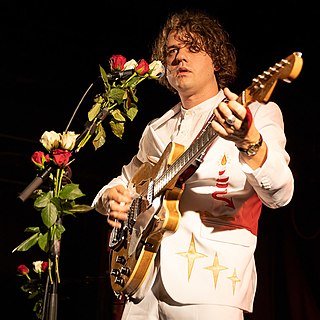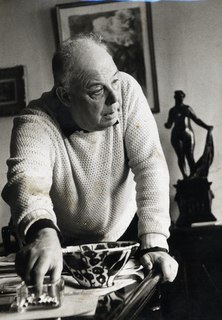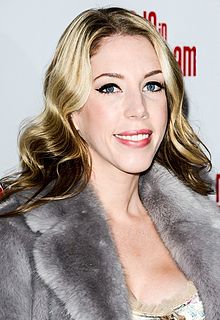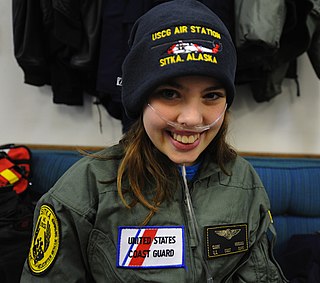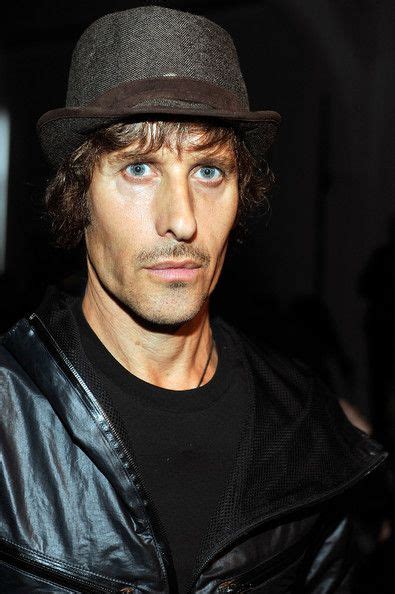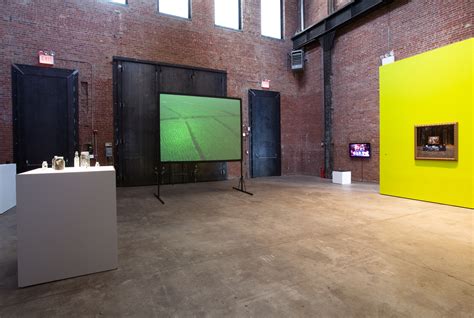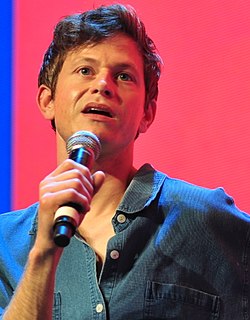A Quote by Kim Gordon
When I was young, there was never any space for me to get attention of my own that wasn't negative. Art, and the practice of making art, was the only space that was mine alone, where I could be anyone and do anything, where just by using my head and my hands I could cry, or laugh, or get pissed off.
Related Quotes
To the question, ‘Is the cinema an art?’ my answer is, ‘what does it matter?’... You can make films or you can cultivate a garden. Both have as much claim to being called an art as a poem by Verlaine or a painting by Delacroix… Art is ‘making.’ The art of poetry is the art of making poetry. The art of love is the art of making love... My father never talked to me about art. He could not bear the word.
I really loved making my mom laugh, and I knew that she thought that I was funny. It was really valuable, in my home growing up, to be able to have a chat and participate in a conversation and be funny. Whatever I could do to make my mom laugh could either get me out of trouble or just get me more attention or get me respect in the house.
So the recordings were these immersive landscapes, and yet, unlike the performances that almost no one would see, I had a sense that these could live forever. I was just starting to get my head around the democratic aspect of art; I didn't want to make rarefied things that were either alienatingly obscure or elite and art-worldy, so a recording that anyone could buy was a great medium.
It takes a while to master the art of hammock-lounging. At first I could only manage five minutes or so before I thought I ought to get out and go and help a child learn how to swim or something. But after observing the Mexicans' capability for staring into space for hours on end, I decided to put in some proper practice.
I'm glad things are getting better, but I'm going to push and be pissed off until they're perfect. That will probably never happen, but I feel some weird duty nonetheless. Even though I can get married in Seattle, I could go to another country and get the death penalty just for being myself-I'm not making music just for fiancés in Seattle.
I really believe in empty spaces, although, as an artist, I make a lot of junk. Empty space is never-wasted space. Wasted space is any space that has art in it. An artist is somebody who produces things that people don't need to have but that he, for some reason, thinks it would be a good idea to give them.
Too pissed off to cry, I said, 'This is only making me hate her. I don't want to hate her. And what's the point, if that's all it's making me do?' Still refusing to answer how and why questions. Still insisting on an aura of mystery. I leaned forward, head between by knees, and the Colonel placed a head on my upper back. 'The point is that there are always alsweres, Pudge.' And then he pushed air out between his pursed lips and I could hear the angry quiver in his voice as he repeated, 'There are always answers. We just have to be smart enough.' ~Miles/Pudge and Chip/the Colonel, pg 168
Any time you do something, you make decisions about time and space. I wanted those decisions to be out of my hands. I could be dragged, carried along by another person, I could be a receiver. I could be the agent of the overall scheme, but I didn't want to be the agent of the particular action. I could make the ultimate decision that my space is going to change now, but I don't know where it's going to go.
I wanted to get that scholarship to - a division one scholarship and play ball and go to school for free. And that, to me, was - I was always about getting to that next step. If I could get to that next place, then I could figure out essentially what to do with being in that space and how to manage my time and handle those - handle all the benefits of being in that space in a way that would get me to the next place.

